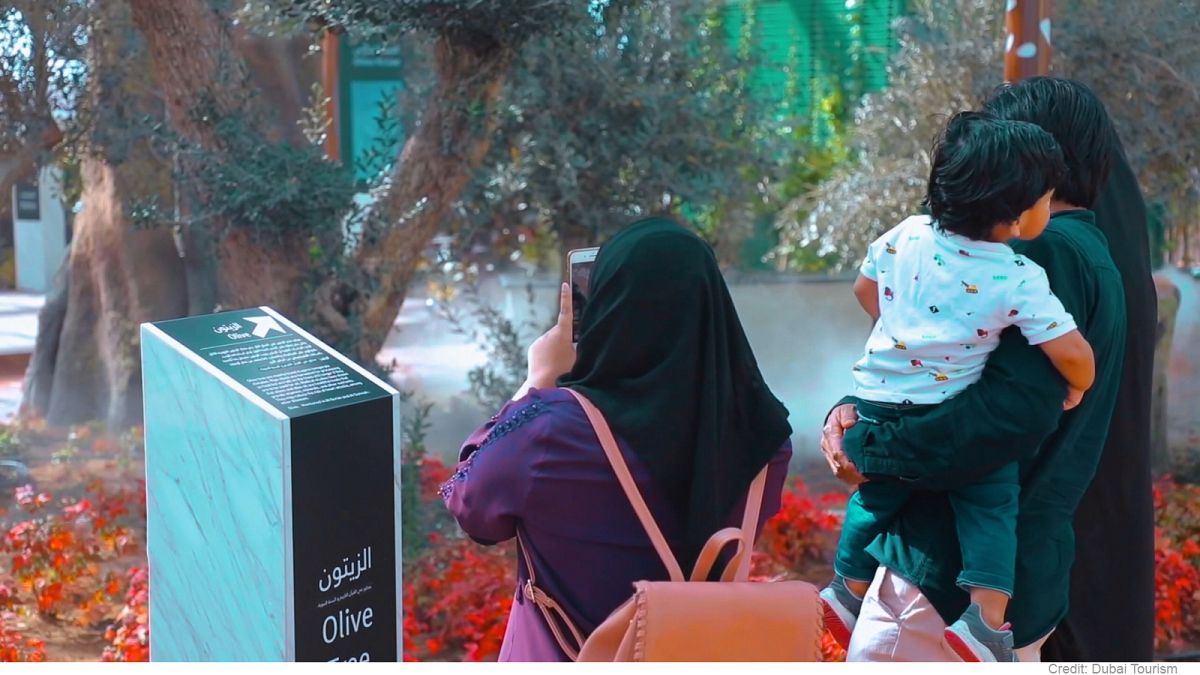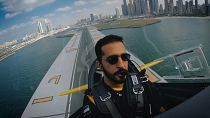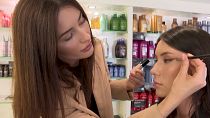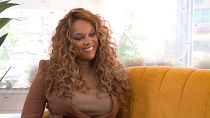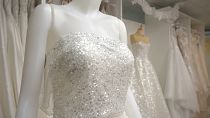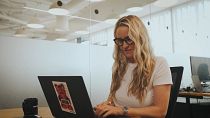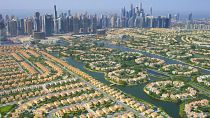Dubai is home to a multitude of museums, from world-firsts to hidden gems.
Quranic Park is one of the city's brand new attractions. About the size of 60 rugby fields, it has been created to give visitors some green space and a better understanding of Islamic beliefs.
Inside the park’s orchards and Glass House, visitors can discover a variety of healthy and medicinal flora featured in the Holy Quran, from pomegranates and olives, to figs and garlic.
Another attraction at Quranic Park is the Cave of Miracles, where seven miracles recounted in the Holy Quran play out on the walls.
"The cave was amazing," says Usman, who is visiting from the UK. "We learnt a lot about the miracles growing up, it just gave another understanding to it. And it was great to visualise it, not just hear about it."
"This is an open example that the Quran is not just to read in order to get reward but it is something that can be in practical life," says Anwar, a visitor from the US.
"This place is beautiful and a very interesting experience for children. Here, they can actually experience things from the Quran," says Miteab, who lives in Saudi Arabia.
Al Shindagha Perfume House
From aromatic flora to the UAE’s first museum dedicated to fragrance. The Al Shindagha museum is home to the Perfume House.
Part of a complex created to gather, preserve and share Emirati heritage, Perfume House charts the history and role of fragrance in the region.
Rashed Almuhairi is Perfume House’s Chief Cultural Guide.
“It’s special and important not only for the guests who are coming, he tells Euronews. "It’s for our own generations also. A lot of our youth, they didn’t live in many things like perfuming or pearl diving, so it’s important that they know about our past life. Dubai has a very rich history which needs to be told.”
One of the more unusual exhibits on display is a 28 kilogramme piece of oud. Oud is formed in aquilaria trees when they are infected with a particular type of mould. This resinous heartwood is the key ingredient in Arabian scent.
Fragrance is a central element in another Emirati ritual - that of gahwa, better known as coffee, which brings us to the historical Al Fahidi neighbourhood and to this hidden gem.
Coffee Museum
A cool sanctuary on a hot Dubai day, the Coffee Museum is a quirky collection of artefacts, books and vintage souvenirs ranging from antique Arabian coffee pots, called dallah, to a cup commemorating the 1981 wedding of Britain’s Prince and Princess of Wales.
The museum is the passion project of owner Khalid Al Mulla
“Coffee Is the second biggest commodity after oil and the most consumed drink after water. And it’s a social, political and economic aspect in our life. Whenever you see the presentation of the Arabian dallah ok? That means whoever presented that [...] would like to welcome his guest. So this Arab hospitality travelled hundreds of years back and now you see it in 5-star hotels, in government departments even the symbol of the Arabian d_allah_ you see it all over the GCC countries which means the country would like to welcome its guests."
There’s also a particular way that Arabian coffee is served. The dallah or coffeepot is held in the left hand and the pourer should serve the most important person first. Cups are held in the right hand and shaken from side to side to show when you’ve had enough. Upstairs you’ll also find the museum’s coffee bar, stocked with local and international brews to help fuel your sightseeing adventures.
Museum of the Future
And from next year, that will include the chance to see the Museum of the Future. The building, inspired by the principles of feng shui, represents the earth and sky. The hole in the centre symbolises the unknown and that’s exactly what visitors will experience through displays of ground-breaking technology.
